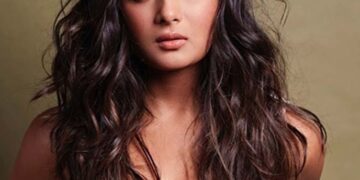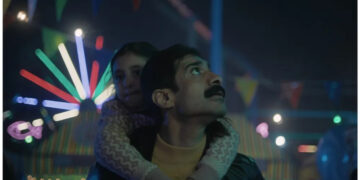In a significant cinematic milestone, the debut feature film by Assamese filmmaker Mehdi Jahan, titled ‘Joymoti Never Left’ (Tumi Najaba, Joymoti), is set to have its world premiere at the 53rd edition of the International Film Festival Rotterdam, 2024 (IFFR 2024). The announcement was made by the film’s producers in a statement released on Thursday.
‘Joymoti Never Left’ holds the distinction of being only the second Assamese feature film, following Jahnu Barua’s ‘Hkhagoroloi Bohu Door’ (It’s a long way to the sea) in 1996, to be officially selected for the prestigious International Film Festival Rotterdam (IFFR). Mehdi Jahan serves as the producer, director, cinematographer, and co-editor of the film, with co-editing contributions from filmmaker and editor Duttatreya.
The film is slated to be screened in the ‘Cinema Regained’ section of the festival, described on the official IFFR site as “a sphere of collective remembrance and imagination offering restored classics, documentaries on film culture, and explorations of cinema’s heritage.”
Scheduled to take place from January 25 to February 4, the festival will showcase the unique blend of fiction, fantasy, and documentary elements in ‘Joymoti Never Left.’ The film presents a dreamlike portrayal of Jyotiprasad Agarwala, the first Assamese filmmaker, through the perspectives of his daughter Satyashree Agarwala Das, granddaughter Radha Das, and great-grandson Raghu Pratap. Notably, these family members not only star in the film but actively participated in its production.
Jyotiprasad Agarwala, a polymath and the pioneer of Assamese cinema, created the first Assamese film, ‘Joymoti,’ in 1935, leaving behind a rich legacy of plays, songs, and poems.
‘Joymoti Never Left’ aims to showcase Agarwala’s overlooked ingenuity as a filmmaker and his unwavering feminist ideals, blending elements of fiction and documentary to create a compelling narrative. Renowned German film critic and curator Olaf Moller, commenting on the film on the official IFFR site, noted that it explores the convergence of past, present, and future in an essay on cultural heritage and its diverse political and spiritual dimensions.
Before this feature film, Mehdi Jahan gained recognition for several narrative and experimental short films in Assamese, earning accolades at various international and national film festivals.








